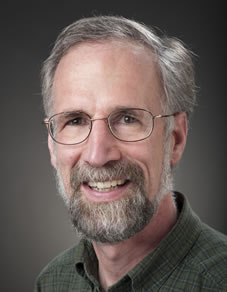
Professors and researchers might shy away from using their university-issued eMail accounts to discuss thorny political issues, turning instead to personal eMail, after a University of Wisconsin (UW) professor’s electronic exchanges were made public in accordance with a request from the state’s Republican Party.
UW history professor William Cronon came under scrutiny last month during Wisconsin lawmakers’ battle over legislation that would severely curb labor unions’ ability to collectively bargain. Cronon wrote a post for his blog, Scholar as Citizen, that questioned the origins of the union-busting bill.
Cronon also wrote a New York Times opinion piece critical of the Republican-backed legislation. Using Wisconsin’s Open Documents Law, conservative groups filed a Freedom of Information Act (FOIA) request seeking eMail messages from Cronon’s UW account that mentioned key words in the labor union political fight, including “recall,” “collective bargaining,” “union,” and “rally.”
UW Chancellor Biddy Martin said in an April 1 statement that the school had handed over an undisclosed number of Cronon’s eMail messages in accordance with state law.
Messages released by the university didn’t include “what we consider to be the private eMail exchanges among scholars that fall within the orbit of academic freedom and all that is entailed by it,” Martin said, adding that a university review of Cronon’s eMail messages revealed no “partisan political activity” using school resources.
Even if Cronon’s FOIA-ed eMail messages show no wrongdoing by the Rhodes Scholar, faculty members on campuses nationwide said the Wisconsin controversy could make professors think twice before sending eMail to a colleague that might be construed as political in nature.
A larger question is whether the GOP’s actions might have a chilling effect on academic freedom, if researchers shy away from tackling politically sensitive topics as a result of these probes.
Professors interviewed for this story by eCampus News spoke anonymously, because the open-records request remains a highly contentious issue in higher education—and many campus administrators don’t approve of faculty publicly assessing the heated political debate.
A faculty member from a college in the Southeast said the lingering threat of partisan political attacks could motivate professors to use personal eMail accounts, which, unlike a college account, wouldn’t be subject to open-records laws.
“You might see [professors] turning to their Gmail or Yahoo! or AOL accounts for a while after this,” the educator said.
David Halperin, director of Campus Progress, a left-leaning national organization, said using personal eMail accounts to exchange work-related ideas and theories might be the best protection for faculty members wary of political attacks.
“In a world where there’s a lot of overreaching, I think it’s probably a smart thing for professors to do,” he said. “But a better practice would be one in which they don’t have to work around the system” and resort to personal eMail accounts to avoid scrutiny.
FOIA requests play an important role in keeping public employees and institutions accountable, Halperin said, but the open-records requests “shouldn’t cover exchanges about economic theories or research,” for example.
“We believe there should be exemptions for academic purposes,” he said. “[FOIAs] should address whether someone is abusing their authority or violating the law. … Somebody’s ideas or an academic debate should not be exposed for political reasons.”
Martin, in her latest statement on the FOIA request, said “reprisal for unpopular positions” from outside groups could drive talented researchers and professors away from UW and campuses across the country.
“When faculty members use eMail or any other medium to develop and share their thoughts with one another, they must be able to assume a right to the privacy of those exchanges, barring violations of state law or university policy,” she said. “Having every exchange of ideas subject to public exposure puts academic freedom in peril and threatens the processes by which knowledge is created.”
In her statement, Martin encouraged UW faculty to “continue to ask difficult questions, explore unpopular lines of thought, and exercise your academic freedom, regardless of your point of view.”
Cronon had not responded to an interview request from eCampus News as of press time, but in an April 1 post on Scholar as Citizen, he thanked UW for its support during the controversy and briefly discussed the ramifications for academic freedom.
“My colleagues at colleges and universities across the country … have joined me in expressing strong concern about the threat to academic freedom represented by requests of this sort, but expressions of concern do not by themselves solve the difficult challenge of figuring out how best to balance the genuine public interest represented by freedom of information and open records laws on the one hand, and privacy, academic freedom, and First Amendment rights on the other,” he wrote.
Cronon joins a growing list of professors targeted by conservative organizations during the escalating national debate over public-sector labor unions.
The Michigan-based Mackinac Center for Public Policy on March 30 filed FOIAs seeking eMail messages sent and received by faculty at Michigan State University, Michigan University, and Wayne State University.
The Mackinac Center defended its information requests in a blog post, saying FOIAs remain an “important tool for monitoring our government” and adding that the organization “has no intention of curtailing that use in the future.”
The group’s FOIA asks for eMail messages sent by faculty and staff in the universities’ labor studies departments that include words such as “Wisconsin,” “Scott Walker”—Wisconsin’s Republican governor—and “Maddow,” presumably referring to MSNBC host Rachel Maddow.
- Research: Social media has negative impact on academic performance - April 2, 2020
- Number 1: Social media has negative impact on academic performance - December 31, 2014
- 6 reasons campus networks must change - September 30, 2014
